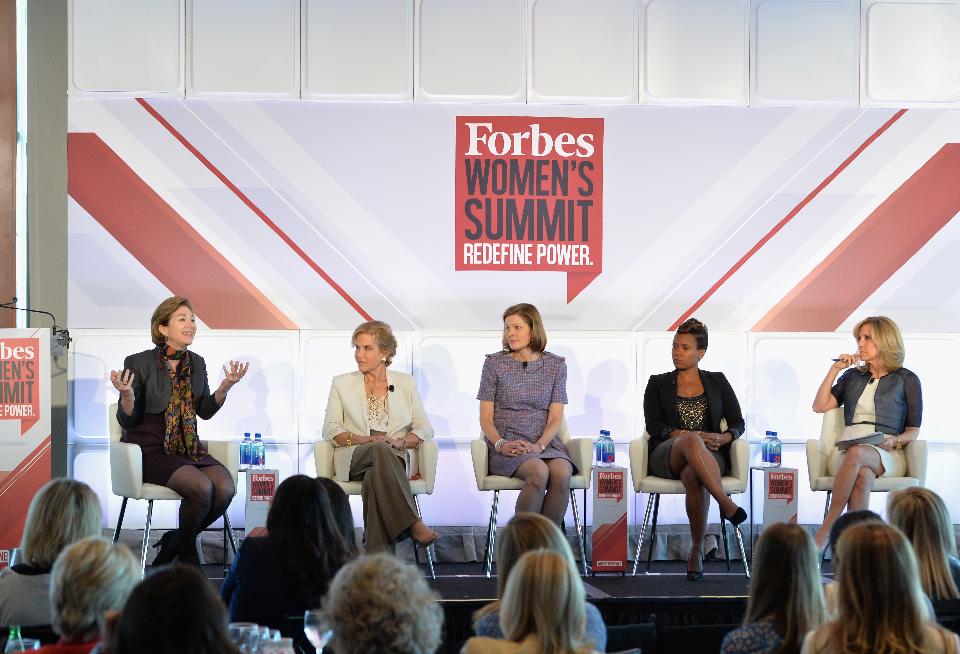Despite some strides in achieving workplace equality, only 21 women helm the world’s largest corporations today, according to a survey released by the Rockefeller Foundation. Judith Rodin, president of the Rockefeller Foundation, announced a campaign to change that today at the Forbes Women’s Summit.
“null ,” said Rodin. She acknowledged there’s a lot of work to be done but aside from moving toward equality, the results will also be beneficial to everyone. “Companies with women in the C-suite are 15% more profitable [than others].”
The big question, however is how to achieve this. At a panel on redefining the workplace, suggestions included mentorships, redefining men’s roles and blind recruitment.
Anne Marie Slaughter, who sparked heated debate in 2012 when she wrote “Why Women Still Can’t Have It All” for The Atlantic Magazine, said that at the present rate of women having roles running large companies, it won’t be until 2100 when an equal number of women head up the world’s largest corporations.
She offered two suggestions to help spur a campaign for change. The first is to change men’s roles in society as much as women’s roles have evolved. Generally, women are the lead spouse organizing children’s playdates, orthodontist appointments and planning moves, she said. Men need to also take the lead, she added. Her second point was that the role needs to be valued more. ”The work we do, the work of care, the work of investing in a next generation–there’s not a single more important thing we do in a child’s life, ” she said. It is possible to quantify this kind of work, she added, and it should be counted as part of the GDP.
Slaughter also suggested that society change its vernacular: ”Stop talking about women as ‘working mothers’ or start calling men who work ‘working fathers,’” she said. ”Or just say he or she is a ‘working parent.’”
Deanna Mulligan, President and CEO of Guardian Life Insurance Company of America, is one of the few women in the C-suite of a Fortune 500 Company. She said her company is working on a broader problem: How to get people who grow up in homes with no role models for job training and get them in the workforce to set up their career.
“I’m here today to call for more corporation and more recognition for companies that are bringing in interns, that are mentoring,” said Mulligan. ”Mentor, mentor, mentor – not just people like you, but people who don’t look like you.”
Stephanie Lampkin said she grew up on welfare and was raised by a single mother. She learned coding by age 13. Years later, she earned an engineering degree from Stanford University and an MBA from MIT. In spite of her education and experience, she was told she wasn’t “technical enough” for a role in software engineering. Soon after, she founded Blendoor, a “blind recruitment” app that facilitates job-matching based on merit, circumventing unconscious bias.
The panelists pinned much of their hopes for workplace equality on millennials, who they agree will likely not accept the status quo.
“I’m feeling hopeful because every company now wants to be on the cutting edge of how to retain talent,” said Lampkin. ”I think our generation’s unique in that we’re the first to have more [female] college graduates than men so I think we’re going to demand more.”

